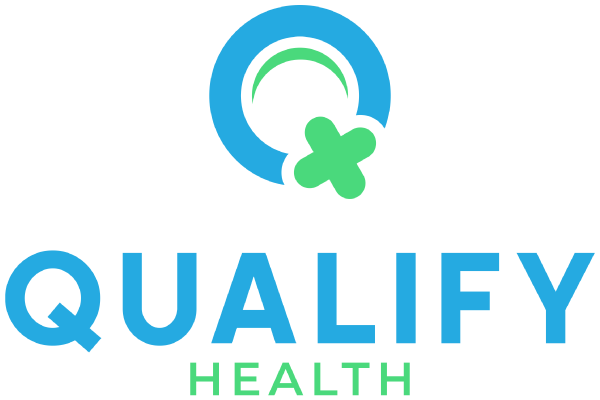Financial Toxicity is the term used to describe the harmful effects that the cost of cancer treatment has on cancer patients. This phenomenon is becoming widely accepted and is recognized as a real risk for those undergoing cancer treatment. Patients who experience financial hardships during their cancer journey are more likely to experience poor clinical outcomes, reduced quality of life, and long-term financial struggles. Those with advanced-stage cancers, undergoing chemotherapy or radiation, and having underlying medical conditions are at the highest risk for Financial Toxicity. Additional risk factors include low income, loss or reduction in work, young age at diagnosis, and being uninsured or underinsured.
In this article, we are going to understand:
- The Effects Financial Toxicity Has on the Body
- How Finances Influence Medical Decision-Making
- Quality of Life During and After the Battle with Cancer
- How to Combat Financial Toxicity
The Effects on the Body
Struggling with finances is already a burden for many families in the US. According to an article by the National Cancer Institute, cancer is one of the nation’s most expensive treatments. It is not uncommon for patients and their loved ones to struggle to cover living expenses while undergoing cancer treatment. That stress can significantly affect the body, affecting the musculoskeletal, respiratory, cardiovascular, endocrine, gastrointestinal, nervous, and reproductive systems. Chronic stress can cause long-term damage as the body is constantly on high alert, leading to wear and tear even on an otherwise healthy body. The National Cancer Institute indicates that it’s even more dangerous for cancer patients as stress-induced hormone changes can also impact cancer cells, making them more resistant to treatment and even causing them to spread.
Finances Impacting Medical Decisions
When coping with the financial burden of cancer treatment, patients often must make difficult choices as they struggle to balance the cost of daily living with the added expense of treatment. This strain can result in them canceling appointments or delaying treatment to make ends meet. Sometimes, patients even resort to halving their meds or skipping doses to prolong their prescription and save some money. The problem is that these measures might ease the budget, but they also reduce the effectiveness of treatment and outcomes.
Quality of Life During the Fight and Long After
Struggling with financial toxicity while fighting cancer can significantly impact your quality of life, both during and after treatment. Many patients deplete their savings, including retirement funds, and cut back on leisure activities and expenses like food and clothing to save money. Unfortunately, prolonged treatment and the possibility of cancer recurrence mean that the cost of care extends far beyond chemotherapy and radiation. Research shows that cancer survivors are more than twice as likely as those without cancer to file for bankruptcy. It’s essential to address the financial challenges of cancer treatment so that patients can focus on what matters – their health and healing.
How to Combat Financial Toxicity
Protecting yourself from financial hardships caused by illness is essential. More than simply having health insurance is required – you must ensure adequate coverage. This means understanding the expenses not covered by your insurance and setting aside money to cover these costs, including your deductibles and out-of-pocket maximums. If you can’t afford these costs, you’re likely underinsured. If you’re employed, ensure you understand the benefits your employer offers. Learn about open enrollment periods, supplemental insurance options, employee assistance programs, and policies regarding leave and time off. When you visit your healthcare provider, ask about the cost of treatments and discuss your options with your finances in mind. If you need financial assistance, many oncology practices offer services for this, so don’t hesitate to make an appointment to ask for help.
Resources that Can Help
Adequate health insurance is ideal, but not everyone can afford it. That’s where Qualify Health comes in. The organization works with hospital systems, cancer treatment centers, specialty pharmacies, and physician offices to help uninsured and underinsured patients afford needed treatment. Qualify Health specializes in patient financial advocacy, which involves reducing the financial burden on patients with chronic and life-changing illnesses. By finding funds for out-of-pocket healthcare expenses like co-pays, premiums, and even transportation, Qualify Health works alongside healthcare providers to get patients the care they need while easing the financial burden.
Click to learn how we can help https://www.qualify.health
Financial toxicity caused by cancer treatment can devastate the patient’s physical and emotional well-being. It is crucial to understand how finances influence medical decision-making and what resources are available to help manage the financial burden of this serious illness. By taking proactive steps such as understanding one’s health insurance coverage, asking providers about costs upfront, and seeking out organizations like Qualify Health that specialize in helping uninsured or underinsured patients afford treatments, individuals can reduce their risk for financial hardship associated with cancer care. Ultimately, these measures will help ease the stress and enable patients to focus more fully on their health and healing journey.
For more information about Patient Financial Advocacy Solutions, contact Qualify Health at (888)770-7191.

